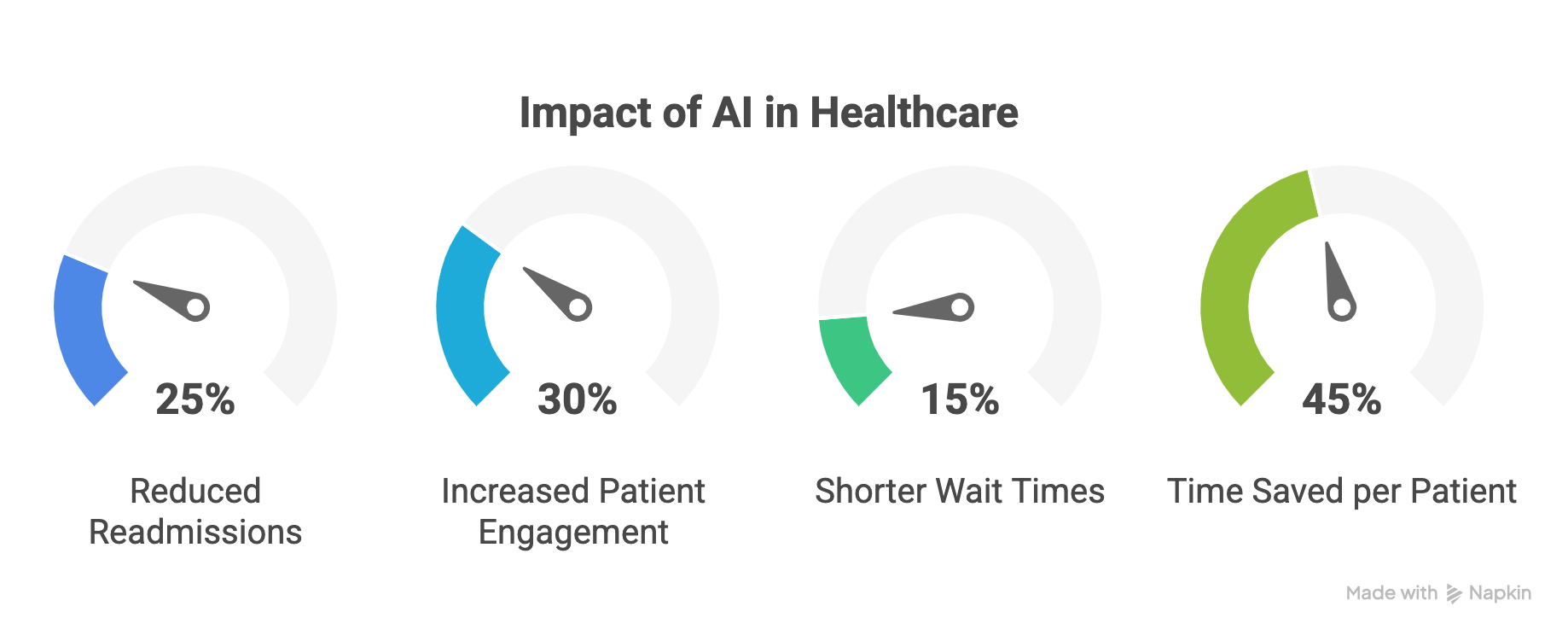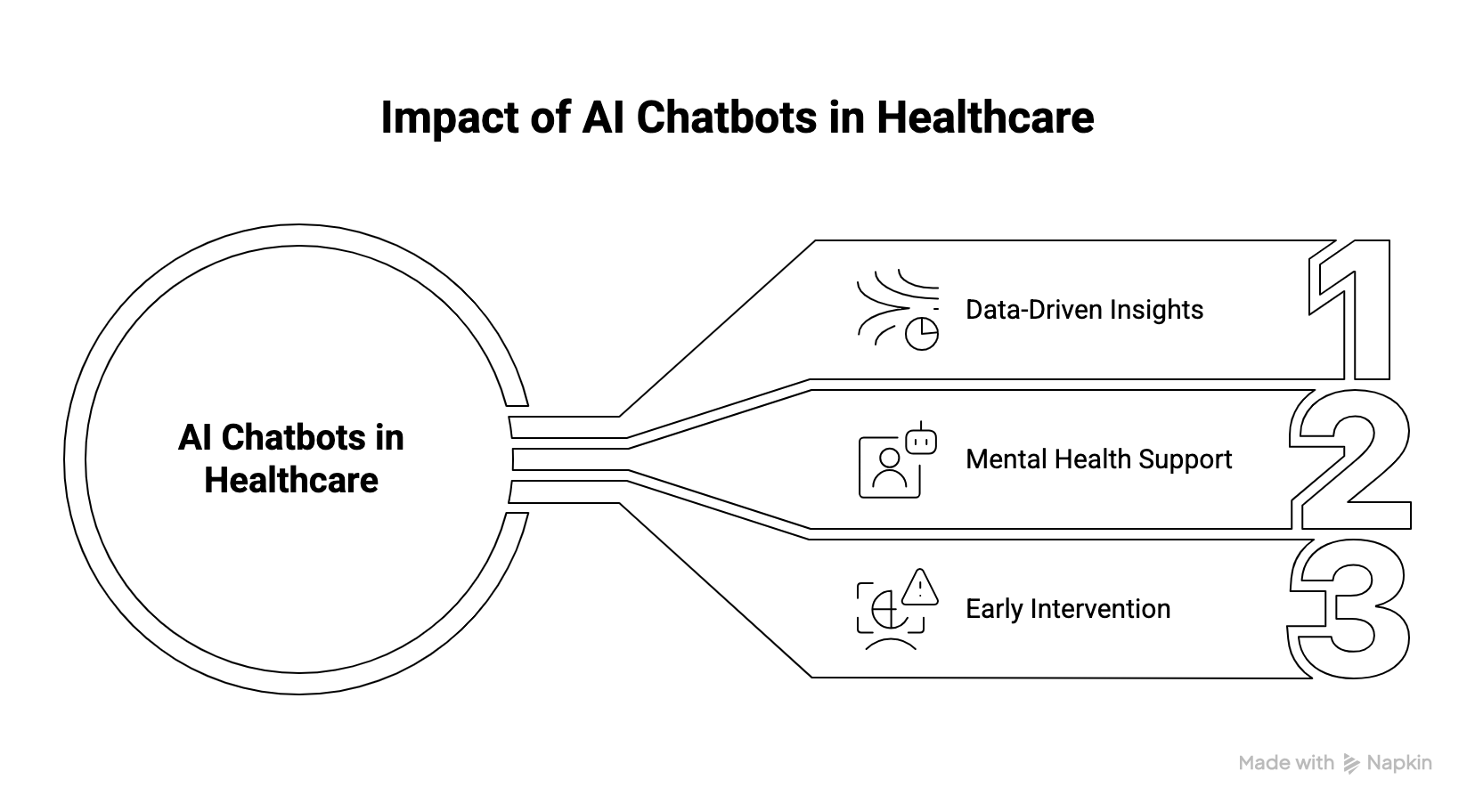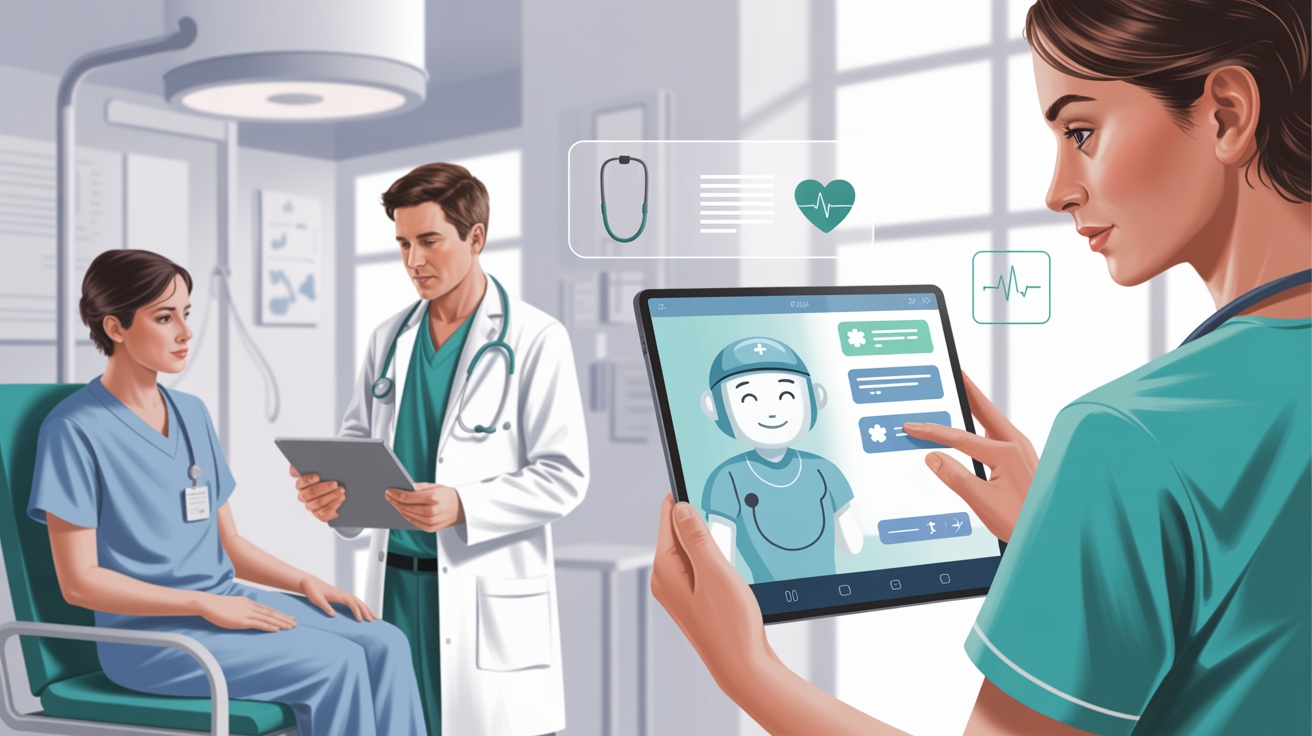Healthcare is changing fast and AI-powered chatbots are at the forefront of that transformation. These digital assistants offer instant, reliable support to patients while freeing up clinicians to focus on what truly matters.
PerfectCSR believes that AI chatbots aren’t the future, they’re already here. Let’s walk through how they benefit both patients and providers across the healthcare ecosystem.
1. Access Healthcare Support 24/7
AI chatbots offer uninterrupted access to medical information and support even at 3 AM or on holidays. That means no more long hold times, overwhelmed phone lines, or lost patient inquiries.
- Patients can ask about symptoms, medication schedules, or next steps instantly and anonymously.
- For sensitive topics like mental health and chronic condition guidance the chatbots offer a judgment-free zone.
This around-the-clock support enhances patient experience and reduces no-shows or missed information.
2. Streamline Patient Flow and Cut Admin Costs
Healthcare chatbots reduce administrative burdens significantly:
- Common tasks like appointment booking, prescription refills, and basic triage can be automated.
- They reduce average call-handling times by 20%, boosting patient throughput and lowering overhead costs.
- Industry-wide, chatbot-driven automation saved the healthcare sector $3.6B globally in 2022, up from $2.8M just 5 years prior.
Clinics and hospitals can then reallocate resources to complex, hands-on care.
Deliver 24/7 Patient Support Without Extra Staff
Engage patients anytime, automate admin work, and improve outcomes all while maintaining the personal touch your care team is known for.
Book a Free AI Chatbot Consultation3. Provide Personalized Care Without Extra Strain
AI chatbots gather and analyze patient input like symptom details or medication habits to tailor recommendations accordingly:
- For chronic diseases (like diabetes, hypertension, asthma), chatbots provide reminders and follow-up routines.
- They deliver personalized content based on medical history and patient behavior.
This personalization helps improve treatment adherence and health outcomes without adding stress to clinical teams.
4. Improve Patient Outcomes and Reduce Readmissions
Hospitals using AI chatbot workflows reported:
- Up to 25% fewer readmissions for chronic condition patients, thanks to digital follow-up and reminders.
- Patient engagement increased 30%, enhancing compliance with care plans.
- Wait times for minor queries dropped by 15%.
These improvements translate into healthier patients and less strain on healthcare staff.

5. Automate Clinical Documentation with AI Precision
AI transcription and scribe tools can convert spoken doctor-patient conversations into structured documentation in real time like SOAP or BIRP notes:
- Generative AI technologies (NLP and speech‑to‑text) save clinicians up to 45 minutes per patient, while reducing burnout and improving documentation accuracy.
Less time charting means more time caring.
6. Collect Patient Text Data for Smarter Insights
Every interaction with a chatbot like symptoms, queries, treatment concerns becomes data that healthcare providers can analyze:
- Identify trending health concerns, medication adherence challenges, or common patient questions.
- Predict flare-ups, risk factors, or needs for preventative care.
- Use insights to design education programs or tailor follow‑up protocols.
This real-time data pipeline enhances decision-making and early intervention.
7. Support Mental Health & Emotional Well-being
AI chatbots are increasingly used to assist with mental health support especially in areas with limited access to therapists:
- Chatbots like Woebot, Wysa, PerfectCSR and Earkick provide interactive, empathic care and well-being check-ins at scale.
- Studies show they can reduce mild depressive symptoms significantly though they are intended as a supplement, not a replacement, for professional therapy.
When patients aren’t ready or able to see a clinician immediately, chatbot support can make a real difference.

8. Expand Access to Healthcare in Underserved Areas
In regions where healthcare is scarce like rural zones or low-resource countries, AI chatbots break barriers:
- They empower users to ask health-related questions and receive credible information without needing a doctor on the spot.
- Some pilots are trained on sexual and reproductive health, delivering privacy and trustworthy responses.
This ability to scale care is invaluable for equity and public health.
9. Safeguard Privacy and Stay Trusted
Chatbot privacy matters in medicine. Patients expect confidentiality:
- Leading developers implement encrypted interfaces, clear consent workflows, and strict data-minimization policies.
- Transparency about data usage fosters trust especially for users discussing sensitive topics or mental health.
- Hybrid models that involve clinician oversight help maintain quality and ensure safe escalations as needed.
Trust is the foundation of effective digital care.
10. Maximize ROI Across the Health System
Healthcare providers integrating chatbot solutions often see returns on multiple levels:
- Reduced administrative costs and staffing needs.
- Higher patient satisfaction and fewer no-shows.
- Improved outcomes driving institutional reputations and funding.
With generative AI advancements, chatbots are enabling smarter healthcare systems where efficiency meets empathy.

When Should Healthcare Organizations Deploy Chatbots?
- High inquiry volumes or long answering delays
- Chronic disease management programs needing follow-up
- Mental health or reproductive health access gaps
- Mass screening or triage needs during public crises
- Preventable readmission challenges or patient retention goals
If any of these describe your organization’s hurdles, AI chatbots offer a scalable solution that grows with demand.
Risks & Responsible Implementation Tips
Implementing chatbots requires thoughtful planning and oversight:
- Always include human escalation paths especially for emergencies or complex symptoms.
- Train chatbots using diverse medical datasets to reduce bias.
- Ensure consistent audits for privacy, consent, and transparency.
- Use evidence-based chatbot platforms, particularly in mental health, that are vetted by certified professionals.
These guardrails ensure technology serves patients not the other way around.
Chatbots Elevate Care, Not Replace Compassion
AI chatbots have matured from novelty to necessity especially in healthcare. They help with scheduling, reminders, triage, documentation, and mental well-being support, all while respecting patient privacy.
At PerfectCSR, we help healthcare providers deploy chatbots that feel human, stay secure, and integrate seamlessly with clinical workflows. We aim for solutions that update healthcare without losing empathy.
Want help launching an AI-assisted patient service or virtual assistant? Reach out. We’ll help you deliver smarter, safer, and more responsive care anytime, anywhere.
Turn Every Interaction into Better Care
From triage to follow-up, AI chatbots keep your patients informed, supported, and connected while giving clinicians more time to focus on what matters most.
See How It WorksFAQs
What are the key benefits of AI chatbots in healthcare?
AI chatbots offer 24/7 accessibility, streamline administrative tasks like appointment scheduling and prescription refills, deliver symptom triage, and support mental health services while reducing wait times and lowering operational costs.
How do chatbots improve patient experience and access?
They empower patients to interact anonymously, receive instant answers, access mental health tools, self-screen, and manage care on their own terms especially helpful outside business hours or in underserved areas.
Can AI chatbots help reduce healthcare delivery costs?
Yes by automating routine tasks such as intake forms, billing queries, and triage, chatbots significantly ease staff workloads and reduce administrative expenses. This improves efficiency while preserving quality care.
In what ways can chatbots support chronic disease and mental health management?
Chatbots offer follow-up reminders, symptom tracking, self-help CBT tools, emotional check-ins, and prescreening enhancing management of conditions like diabetes, hypertension, and mild mental health challenges.
Are there risks or limitations when using AI chatbots in healthcare?
Yes. Chatbots can misinterpret complex cases, lack emotional nuance, and raise privacy or ethical concerns. Proper oversight, data privacy protocols, and clinician involvement are essential for safe deployment.
